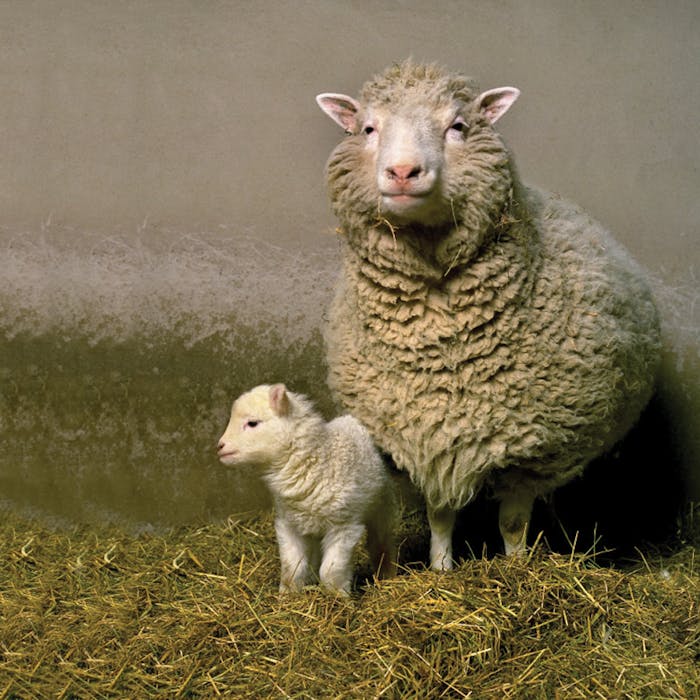
Dolly the sheep - a scientific breakthrough at the University of Edinburgh
Dolly (5th July 1996 – 14th February 2003) was a female domestic sheep, and the first mammal cloned from an adult cell, using the process of nuclear transfer.
Dolly was cloned by Keith Campbell, Ian Wilmut and colleagues at the Roslin Institute, part of the University of Edinburgh.
As with all other cloned animals, Dolly started her life in a test tube. Once normal development was confirmed at six days, the embryo, which was eventually to become Dolly, was transferred into a surrogate mother. The pregnancy went without a problem and Dolly was born on 5th July 1996. She was named after Dolly Parton.
Dolly had three mothers: one provided the egg, another the DNA, and a third carried the cloned embryo to term. The announcement of Dolly's birth caused huge excitement and a great deal of international press interest.
In an attempt to allow Dolly to have as normal a life as possible, it was decided that she should be allowed to breed. A small Welsh mountain ram was selected as her mate and between them they successfully produced six lambs. Their first lamb, Bonny, was born in the spring of 1998 and is pictured with Dolly above.
Dolly was euthanised at the age of six-and-a-half because she had contracted a progressive lung disease. She was also suffering from arthritis. There was some speculation that because Dolly was cloned from a six-year-old adult, that she was effectively middle-aged when she was born. Sheep of Dolly's breed normally live to 10 or more.
Further research suggests that Dolly was just unlucky rather than aging prematurely. Four identical clones created later from the same cells as Dolly (Daisy, Debbie, Dianna, and Denise) lived lives as healthy as would be expected for ordinary sheep in a similar environment.
And Dolly's legacy? A number of other mammals have since been cloned, but scientists say that cloning a person remains unfeasible, with no scientific benefit and an unacceptable level of risk. Cloning’s biggest impact has been in the stem cell advances it has sparked.
Further reading
Links to external websites are not maintained by Bite Sized Britain. They are provided to give users access to additional information. Bite Sized Britain is not responsible for the content of these external websites.
